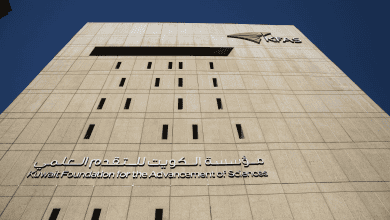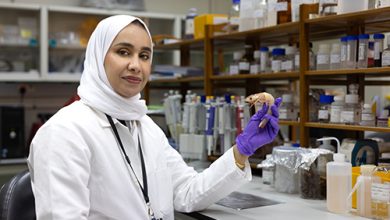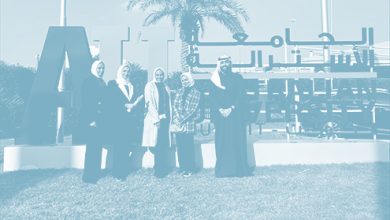Advancing Our Societies with Digital and Energy Transitions
Innovative Solutions Unveiled at Kuwait-imec 3rd Symposium
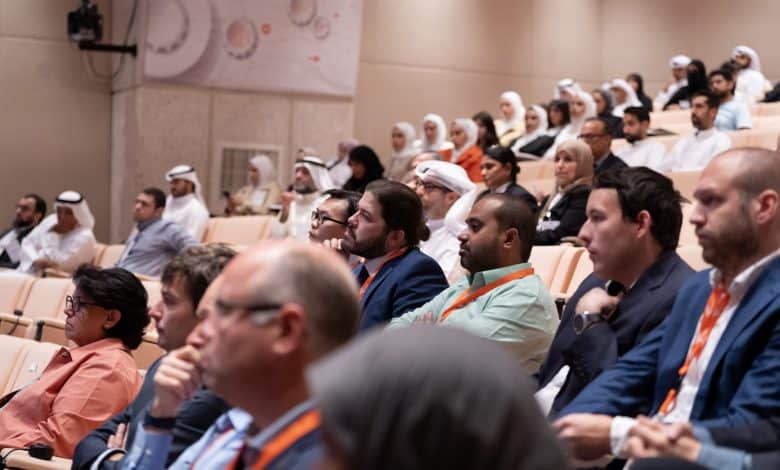
Digital transformation is at the fore-front of Kuwait’s 2035 vision, aiming to propel the nation towards a more innovative and sustainable future. In line with this vision, the Kuwait Foundation for the Advancement of Sciences (KFAS) organized the 3rd Kuwait-imec Symposium: Advancing Our Societies with Digital and Energy Transitions was held in October 2023, in collaboration with the Belgian Interuniversity Microelectronics Centre (imec) and EnergyVille, a collaboration between Belgian research partners in the fields of sustainable energy and intelligent energy systems.
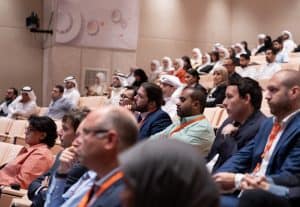 Featuring 12 global experts in digital technologies, artificial intelligence, and photovoltaic solar cells, the symposium brought together international and regional experts to delve into the profound transformations occurring in societies due to advancements in digital technologies and the transition towards sustainable energy systems. It explored the strategic drivers and digital transformation necessary for diverse AI applications. These applications have the potential to accelerate the pace of scientific discovery especially in areas such as medicine, climate science, and green technology. The convergence of AI holds the promise of a golden age of discovery that will reshape our world. The sessions and discussion were designed to be beneficial to policymakers, industry leaders, researchers, and all stakeholders interested in harnessing the power of data for economic prosperity.
Featuring 12 global experts in digital technologies, artificial intelligence, and photovoltaic solar cells, the symposium brought together international and regional experts to delve into the profound transformations occurring in societies due to advancements in digital technologies and the transition towards sustainable energy systems. It explored the strategic drivers and digital transformation necessary for diverse AI applications. These applications have the potential to accelerate the pace of scientific discovery especially in areas such as medicine, climate science, and green technology. The convergence of AI holds the promise of a golden age of discovery that will reshape our world. The sessions and discussion were designed to be beneficial to policymakers, industry leaders, researchers, and all stakeholders interested in harnessing the power of data for economic prosperity.
The symposium, spanning two days, served as a collaborative platform to explore strategic drivers and requirements for digital transition in various sectors such as healthcare, smart cities, sustainable food, and energy. Key sessions addressed topics including data sensing, Internet of Things (IoT), renewable energy generation, preventive healthcare, sustainable food production, and AI applications. The discussion also covered topics related to developing microelectronics technology in the energy field, and exploring investment opportunities for the private sector.
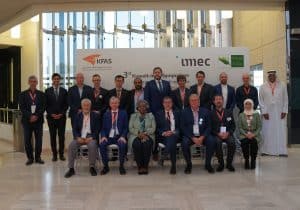 About 300 participants, including researchers, academics, businessmen, and stakeholders from various government entities such as the Kuwait Institute for Scientific Research (KISR), Kuwait University (KU), the Ministry of Electricity Water and Renewable Energy (MOEWRE), the Kuwait Public Authority for Environment (KEPA), as well as representatives from the oil, banking, and diplomatic sectors from several Gulf and European countries, attended this prominent event.
About 300 participants, including researchers, academics, businessmen, and stakeholders from various government entities such as the Kuwait Institute for Scientific Research (KISR), Kuwait University (KU), the Ministry of Electricity Water and Renewable Energy (MOEWRE), the Kuwait Public Authority for Environment (KEPA), as well as representatives from the oil, banking, and diplomatic sectors from several Gulf and European countries, attended this prominent event.
The 3rd Kuwait-imec Symposium kicked off with a vibrant discussion on AI’s far-reaching impact. The first day’s lectures focused on the strategic motives for digital transformation and its requirements in various areas such as healthcare, smart cities, food security, water, and sustainable energy. The presentations also touched on data sensing, information extraction, IoT, and the use of artificial intelligence in widely deployed small computing devices. Moreover, discussions revolved around integrating data and information from these sources, analyzing them, and integrating digital transformation technologies such as IoT and transitioning towards sustainable energy systems.
The focus of the second day centered on the outcomes arising from the 10-year collaboration supported by KFAS between imec and KU to support research photovoltaic projects. The collaboration has led to the establishment of a research program called “Advanced Crystalline Silicon PV Research Program” which is part of a larger international research consortium aimed at developing advanced, highly efficient photovoltaic solar cell technologies at lower manufacturing costs. KFAS has funded 3 phases of the program: Phase I aimed at producing high efficiency solar cell technologies at lower manufacturing costs; Phase 2 focused on the development of new hybrid perovskite based solar cells, this technology has shown strong progress with an increasing efficiency to more than 23%; Phase 3, aimed at assessing and predicting the performance of under Kuwait conditions in collaboration with KISR.
KU has invested KFAS grant in building up new technical infrastructure to have in-house processing capabilities for perovskite solar cells, accelerating the technology knowledge build-up and transfer from imec towards Kuwait University.
This facility concentrates on pushing the boundaries of perovskite solar cell technology, capitalizing on its improved performance and stability for both terrestrial and potential space applications. Innovative hybrid tandem approaches, such as combining perovskite with substrates like silicon or copper indium gallium selenide (CIGS), have yielded device efficiencies surpassing 25%. KU’s advanced facilities for fabricating high-performance perovskite devices underscore its keen interest in space applications.
Research endeavors at the Perovskite lab encompass the design and fabrication of devices tailored for space conditions, utilizing stable P-I-N device structures and specific material compositions like PTAA:Al2O3/C60:BCP for efficient charge transport. The lab conducts comprehensive studies on the optical and electrical properties of these devices under simulated space conditions, shedding light on performance and degradation mechanisms. Detailed insights into materials, processing methods, and device structures are provided to further advancements in the field.
This, 3rd Kuwait-imec Symposium, showcased the dedication of strategic partnership between KFAS, imec and EnergyVille in advancing science, technology, and innovation. The expertise accumulated by KU during that period serves as a solid foundation for the next phase, which involves establishing a Renewable Energy Research Center. The primary objective of the center is to promote the adoption of innovative technologies within the Research Community, raise awareness of these technologies within Kuwait society, and inspire Stakeholders to invest and establish new spin off companies to cater to the local market with innovative products and services related to renewable energy. This is crucial for successful Energy Transition.
بقلم: ماجد المنيفي Majed Al Munefi


